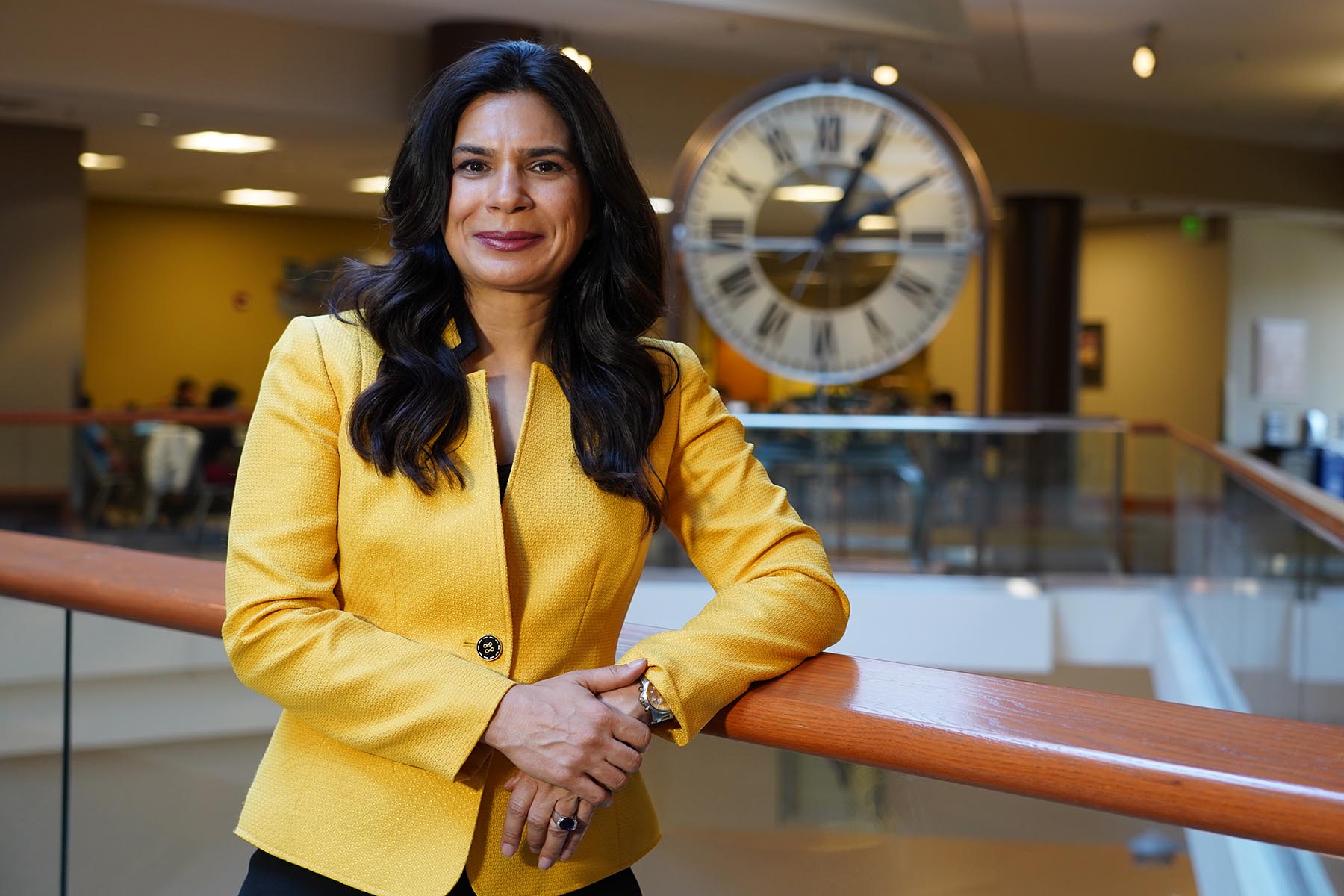Fulbright scholar Nina Mahmoudian to study real-time autonomous ocean exploration in Portugal

Nina Mahmoudian, associate professor of mechanical engineering at Purdue, specializes in persistent autonomy of mobile robots in challenging environments, responding to energy needs and unknown conditions. She has developed algorithms for the coordination and navigation of marine robots, docking stations and approaches for at-sea replenishment, as well as underwater gliders that travel silently for months at a time. Recently, she talked to the media about the OceanGate Titan submarine disaster, and why most ocean science is conducted with uncrewed vehicles.
While her team has learned a lot from testing these robots in swimming pools and lakes, Mahmoudian was looking for an environment to test her work on the open ocean.
“Portugal has the largest protected marine reserve in Europe,” said Mahmoudian. “Universities in Portugal are at the forefront of maritime sensing, and they often share in international collaborations. They are a vital partner in ocean protection and combating climate change, so they align very much with my expertise.”
Starting in October 2023, Mahmoudian will spend five months embedded at the Atlantic International Research Centre (AIR Centre) in Lisbon, a center for collaboration and study of the Atlantic Ocean. “We will be working on real-time networked marine ecosystem monitoring,” said Mahmoudian. “Using autonomous vehicles, we want to create a system that will continuously observe environmental conditions on the sea, map uncharted areas, and create early-warning systems to protect coastal areas. It’s an opportunity to gather huge amounts of data from the ocean that will help influence policymaking and management of coastal and marine areas around the world.”
Coordinating a large fleet of autonomous vehicles on the open ocean requires an extremely robust approach to long-term and long-distance operations. Last year, Mahmoudian’s team won a virtual maritime robot competition, using some of their navigational algorithms. She is excited about the possibility of testing her systems and algorithms with Portugal’s fleet of autonomous marine vehicles. “We want to bring our expertise together, and create a new set of tools that enables this type of sensing on any body of water,” said Mahmoudian.
AIR Centre has a facility in the Azores, an island chain west of Portugal surrounded by 800 miles of open ocean. This is where Mahmoudian and her team of collaborators will be running many of their experiments. “Being able to test marine systems this far into the open ocean, year-round, is something I just couldn’t do in Indiana,” said Mahmoudian. “I look forward to learning a lot from this collaboration, and then bringing that knowledge back to my lab at Purdue.”
This opportunity is being funded by the Fulbright U.S. Scholar program, specifically the Fulbright Award in Space, Atmosphere, Ocean, Climate, Energy and Data Science. “I’ve visited Portugal before, and I’m fascinated by their culture, language, and the beauty of the country,” she said. “But it goes beyond just our two countries. The impact of this collaboration will hopefully be felt around the world. More than 70% of our planet is ocean, so the data we gather will help to protect environments everywhere on Earth.”
Writer: Jared Pike, jaredpike@purdue.edu, 765-496-0374
Source: Nina Mahmoudian, ninam@purdue.edu
